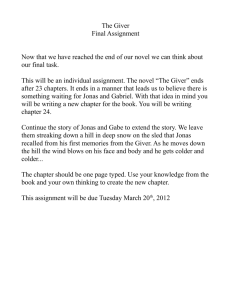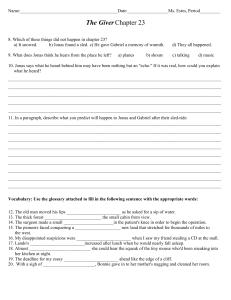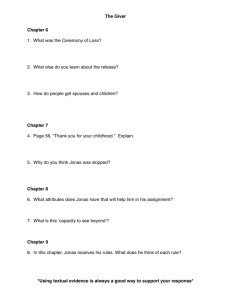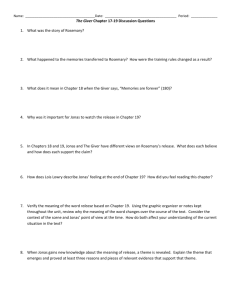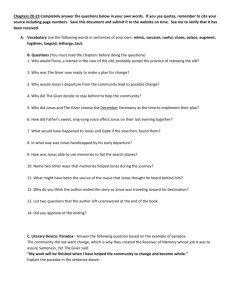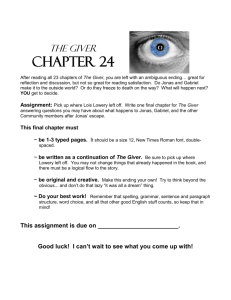Chapters 19-23
advertisement
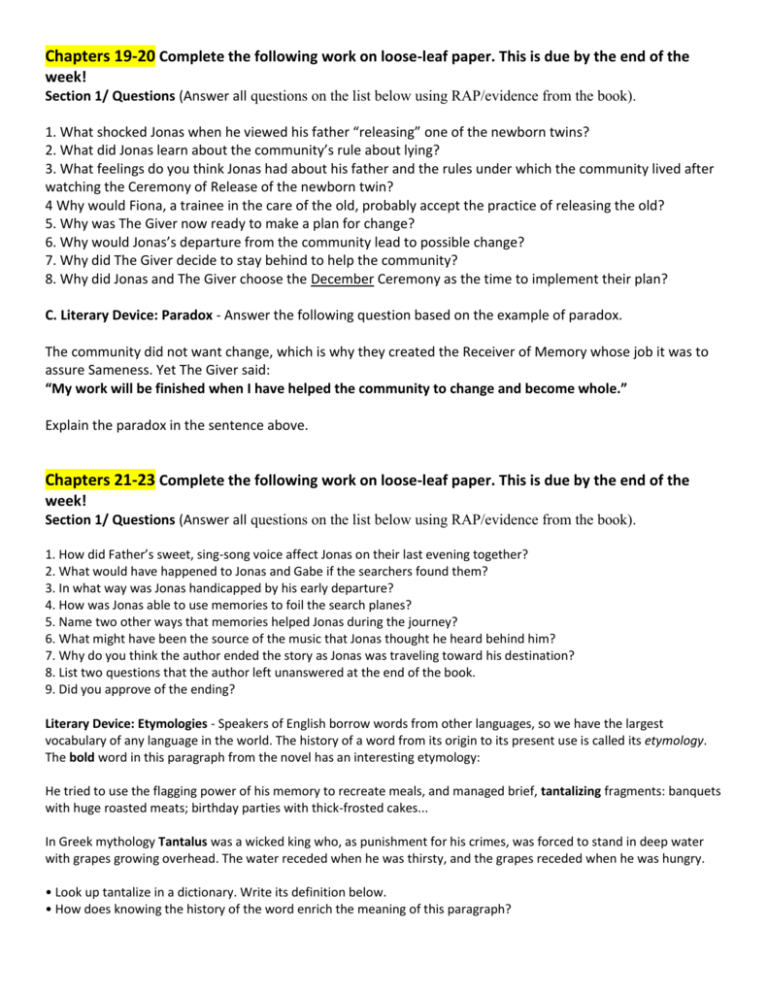
Chapters 19-20 Complete the following work on loose-leaf paper. This is due by the end of the week! Section 1/ Questions (Answer all questions on the list below using RAP/evidence from the book). 1. What shocked Jonas when he viewed his father “releasing” one of the newborn twins? 2. What did Jonas learn about the community’s rule about lying? 3. What feelings do you think Jonas had about his father and the rules under which the community lived after watching the Ceremony of Release of the newborn twin? 4 Why would Fiona, a trainee in the care of the old, probably accept the practice of releasing the old? 5. Why was The Giver now ready to make a plan for change? 6. Why would Jonas’s departure from the community lead to possible change? 7. Why did The Giver decide to stay behind to help the community? 8. Why did Jonas and The Giver choose the December Ceremony as the time to implement their plan? C. Literary Device: Paradox - Answer the following question based on the example of paradox. The community did not want change, which is why they created the Receiver of Memory whose job it was to assure Sameness. Yet The Giver said: “My work will be finished when I have helped the community to change and become whole.” Explain the paradox in the sentence above. Chapters 21-23 Complete the following work on loose-leaf paper. This is due by the end of the week! Section 1/ Questions (Answer all questions on the list below using RAP/evidence from the book). 1. How did Father’s sweet, sing-song voice affect Jonas on their last evening together? 2. What would have happened to Jonas and Gabe if the searchers found them? 3. In what way was Jonas handicapped by his early departure? 4. How was Jonas able to use memories to foil the search planes? 5. Name two other ways that memories helped Jonas during the journey? 6. What might have been the source of the music that Jonas thought he heard behind him? 7. Why do you think the author ended the story as Jonas was traveling toward his destination? 8. List two questions that the author left unanswered at the end of the book. 9. Did you approve of the ending? Literary Device: Etymologies - Speakers of English borrow words from other languages, so we have the largest vocabulary of any language in the world. The history of a word from its origin to its present use is called its etymology. The bold word in this paragraph from the novel has an interesting etymology: He tried to use the flagging power of his memory to recreate meals, and managed brief, tantalizing fragments: banquets with huge roasted meats; birthday parties with thick-frosted cakes... In Greek mythology Tantalus was a wicked king who, as punishment for his crimes, was forced to stand in deep water with grapes growing overhead. The water receded when he was thirsty, and the grapes receded when he was hungry. • Look up tantalize in a dictionary. Write its definition below. • How does knowing the history of the word enrich the meaning of this paragraph?
